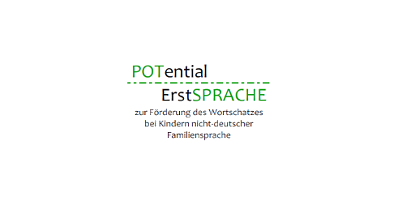Potential of the First-language in the Support and Development of Language Skills and Competencies
The overall aim of the study is to investigate the effectiveness of including the (Turkish) family language to promote vocabulary in German. A particular focus is also on correlation analyses between students' own and perceived parental values and reading frequency on reading comprehension.
Funding
Own funds of Professor McElvany and Research School „Education and Capabilities“ (EduCap)
Project description
The project pursues two goals; on the one hand, it investigates whether the vocabulary of children with a Turkish migration background can be expanded through an implicit support measure, also taking into account the first language, and on the other hand, which individual and family determinants influence reading comprehension and reading frequency.

A large group of children at German schools (also) speak a language other than German at home. The academic success of these pupils is suboptimal compared to children without a migration background. Reading competence is essential for success at school. Various studies on linguistic competences have examined determinants of reading comprehension (e.g. reading frequency). However, there is a lack of consideration of the influence of perceived parental values on their children's language-related values, behaviour and consequently performance. This is particularly the case for pupils with migration-related bilingualism.
A total of 465 pupils participated in the intervention session (77 of them with a Turkish migration background and achievement test data), in which a text with unknown words was read independently either twice in German or first in Turkish and then in German. It can be seen that the children learn additional words in both conditions; an additional potential of the family language cannot be proven. Individual and family conditional factors of reading comprehension were collected in a pupil questionnaire, for which data of 118 children with a Turkish migration background are available. While the pupils' attitude towards the usefulness of the German language and the reading frequency in the German language prove to be positive predictors of German reading comprehension, the usefulness of Turkish and the reading frequency in the Turkish language prove to be negative predictors of German reading comprehension.
Lead researcher at IFS
Project management
- Wahiba El-Khechen (geb. Abou-Saleh)






![[Translate to English:] [Translate to English:]](/storages/ifs-ep/_processed_/8/5/csm_AdobeStock_412860748_9a2dbb816c.jpeg)
